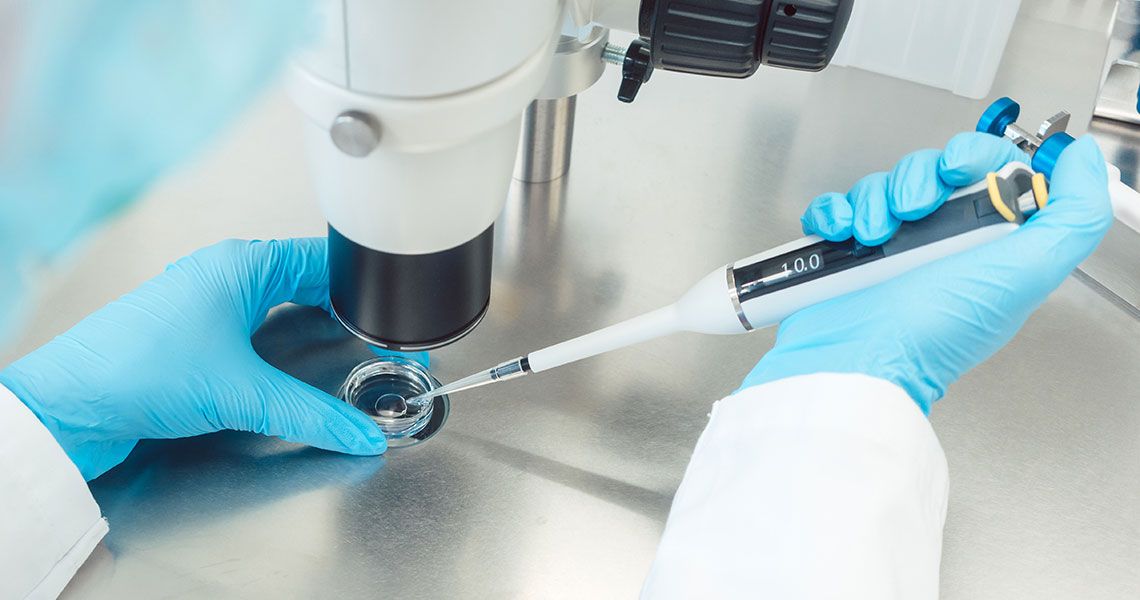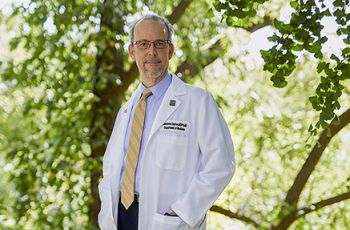In the burgeoning field of clinical embryology, trained clinicians not only graduate into a robust job market, but they also get to perform hands-on lab work. Educational opportunities, however, can be limited — except at the George Washington University (GW) School of Medicine and Health Sciences (SMHS), home of the sole Bachelor of Science in Health Sciences Clinical Embryology and Assisted Reproductive Technology (CEART) program in the nation.
Here, Marcia Firmani, PhD, director of the CEART program, as well as director of the Clinical Microbiology and Molecular Diagnostic Sciences Graduate Programs, and chair of the Department of Biomedical Laboratory Sciences (BLS) at SMHS, explains what prospective students need to know about the curriculum, the field, and the future.
Q. What is clinical embryology?
Firmani: Clinical embryologists are trained medical laboratory professionals who specialize in helping infertility case treatment via the use of in vitro fertilization (IVF) and assisted reproductive technology (ART). Nationally, there is a critical shortage of experienced clinical embryologists due to the lack of educational training programs in the United States, as well as an increased need for IVF and ART across the country. As a result, the job demand in this field is high.
Q. What makes the BSHS in CEART unique?
Firmani: Many clinical embryology and assisted reproductive technology programs are at a master's degree level, and some do not provide any hands-on technical skills. The GW program is the only baccalaureate-level program in the country, and it includes laboratory courses. Students graduate having performed all of the various IVF laboratory techniques.
Q. What should a student expect to study? Is there any hands-on work?
Firmani: This program includes theoretical didactic courses in embryology, andrology, endocrinology, genetics, and molecular technology. These courses include hands-on laboratory courses so that individuals are gaining experience performing the necessary techniques that they will use in clinical practice.
Q. Given the job demand, what can students expect when they graduate? Do most go into clinical embryology, or is medical school the ultimate goal?
Firmani: Many fertility clinic labs have to hire individuals with an unrelated science background and train them on the job. According to some lab directors I have spoken to, this on-the-job training is costly and time-consuming for labs, and, many times, it is not effective. Consequently, there is a need for fertility labs to hire individuals who are adequately prepared.
This program will provide students with the skills needed so that they can be successful. The program of study is designed to prepare graduates for a career in a clinical embryology or fertility clinic laboratory. However, the coursework will also prepare students for advanced degrees if that is what they choose to do. The GW BLS department has a dedicated pre-health professions director who works with students interested in pursuing graduate degrees, such as medicine, after they finish their baccalaureate degree.
Q. What does daily work for a clinical embryologist entail?
Firmani: Typically, this would be working in a fertility lab performing analyses to aid in the determination of why someone may not be able to conceive a child. One example would be performing various analyses on sperm. These individuals would also perform other functions, such as freezing eggs and assisting with the in vitro fertilization technologies to help individuals become pregnant.
Q. What other learning opportunities are there for students pursuing a bachelor’s degree in clinical embryology?
Firmani: The GW BLS department also offers minors that students can take. For example, a student in our BSHS in CEART program would be able to minor in molecular biology. This would mean that the student would take our molecular biology minor courses for some of their elective credits. Students that complete the molecular biology minor would be eligible to take a board certification exam in molecular biology. Since so many lab tests are moving to a molecular-based format, certification in this area would be highly sought after. Consequently, graduates who major in CEART and minor in molecular biology would get the theoretical coursework and hands-on lab experience to perform the lab skills needed for ART as well as molecular-based tests. The minor does not add any additional credits to their BSHS degree.
***
To learn more, visit the BSHS in Clinical Embryology and Assisted Reproductive Technology program or email BLS admissions.



